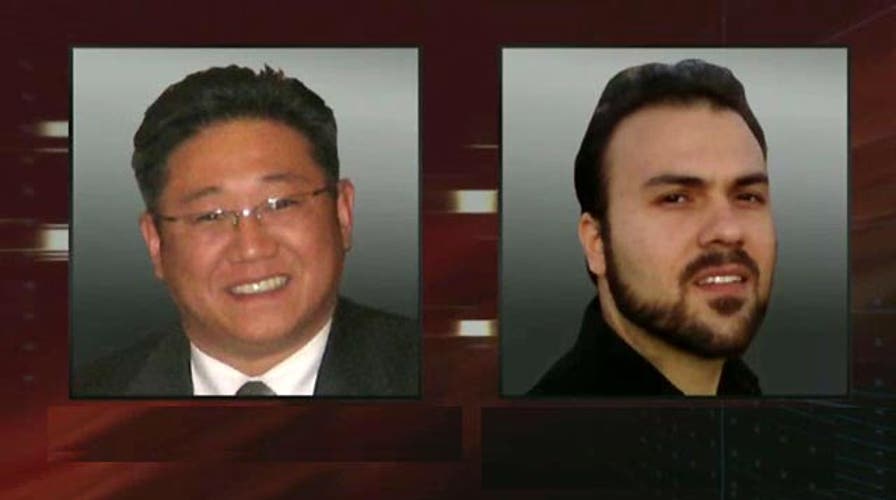In a rare appearance on Capitol Hill by a Vatican representative, Archbishop Francis Chullikatt testified Tuesday before a House subcommittee on the “flagrant and widespread persecution” of Christians in the Middle East.
“No Christian is exempt, whether or not he or she is Arab,” Chullikatt said.
Chullikatt was among seven speakers discussing the escalation of threats to Christians. Specifically, testimony focused on underreported assaults, the plight of impacted Christian communities and the need to protect religious freedoms and civil rights.
“Arab Christians, a small but significant community, find themselves the target of constant harassment for no reason other than their religious faith,” Chullikatt said.
In Syria alone, there have been reports of kidnappings, Christian communities intentionally displaced by militants, as well as shootings and beheadings of Christians who refused to convert to Islam, according to various news reports from the region.
One of the most graphic illustrations of ongoing brutality confronting Arab Christians is the practice of bombings of Christian houses, churches and other places of worship on Christmas Eve, Chullikatt said.
Chullikatt, who has worked in Iraq, also pressed the U.S. to take a stronger stance with the United Nations and its global goal of safeguarding religious freedom.
He also said the psychological damage done to children living through persecution will stay with them for years.
“They’ve had to live in fear,” he said. “They’ve committed no crime. They are children. When they go to their schools, they are not even sure if they will come back safe and sound or even alive.”
Elliott Abrams, the U.S. Commissioner on International Religious Freedom, said while “there is some renewed hope among Christians in Egypt,” there is still much more to be done.
He told lawmakers that speaking out about religious prisoners in public was one way to draw attention to the practice. He also raised the possibility of sanctions.
During his testimony, Abrams called attention to American pastor Saeed Abedini, an Idaho pastor of Iranian origin, who has been held in Iran since September 2012. Abedini is serving an eight-year sentence after being convicted of attempting to establish a network of Christian churches in private homes.
During the Feb. 7 annual prayer breakfast, President Obama called for the release of U.S. missionary Kenneth Bae and Abedini, saying that the United States continues to pray for “all prisoners of conscience” regardless of faith.
Obama told political leaders that “religious freedom around the world remains a fundamental tenet to national security and a central aspect to U.S. diplomacy.”
Among the others who testified Tuesday were Tehmina Arora, attorney at Alliance Defending Freedom-India and Khataza Gondwe, from Christian Solidarity Worldwide.





